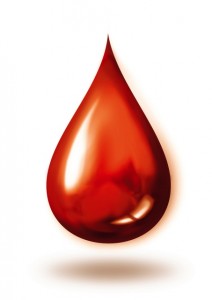The first year students of the Science Faculty are organizing a blood donation campaign which is to be held next month. The World Health Organization states that 107 million blood donations take place every year. There’s a reason why blood donations are so important. Because without blood, there is no life.
Health services require a constant supply of blood to replace blood lost during major surgeries, childbirth or a severe accident. It is also needed to treat patients suffering from Anaemia and other blood disorders such as Thalassaemia and Sickle Cell Anaemia.
Being able to give some of your blood to a person in need is truly a noble act. But not everyone can do it. For starters you need to be 17 years of age and have a minimum weight of 50kg. And most importantly, you need to be healthy!
During a blood donation, about 470ml of blood is taken out. This amounts to about 13% of your total blood volume. This blood is replenished in less than a month.
Our blood can be categorized into different groups (blood types) depending on a certain protein present in our RBCs. Austrian scientist Karl Landsteiner won the Nobel Prize for Medicine and Physiology in the year 1930 for his discovery of the different blood groups. Blood groups are determined by the antigens A and B found in RBCs.
During a transfusion the 2 blood groups (that of the donor and that of the recipient) need to be compatible. If not, the blood types can form clumps in the blood vessels giving rise to a fatal situation. Blood Group O is known as the universal donor as they can donate their blood to any other group and not cause a problem. Similarly blood group AB is known as the universal recipient as they can receive blood from any other blood group.
The Rh (Rhesus) Factor is what brings the + or – to your blood type. If your blood contains this protein, then you’re said to be Rh positive and if it doesn’t, you’re said to be Rh negative. For example, if you’re B+ then it means your RBCs have antigen B as well as the Rh factor.
The aim of this article was not to convince you to donate your blood but merely to create some awareness. Before I wind up, here are a few things to keep in mind if you plan on donating blood. Make sure you
- have had plenty of (non-alcoholic) fluids to drink on the day of the blood donation.
- have had sufficient amount of Iron in your diet – you can do this by eating food items such as red meat, fish, chicken, beans and spinach.
- wear clothing with sleeves which can be easily rolled up above your elbow
Once the donation process is complete, be sure to keep drinking plenty of fluids for the rest of the day and to avoid any strenuous activity. And most importantly, enjoy the feeling of knowing you’ve made a difference in someone else’s life!

Sources
http://www.blood.co.uk/giving-blood/what-happens/how-the-body-replaces-blood/
http://www.nhs.uk/conditions/Blood-donation/Pages/Introduction.aspx
http://www.redcrossblood.org/donating-blood/first-time-donors
http://www.who.int/bloodsafety/voluntary_donation/en/
